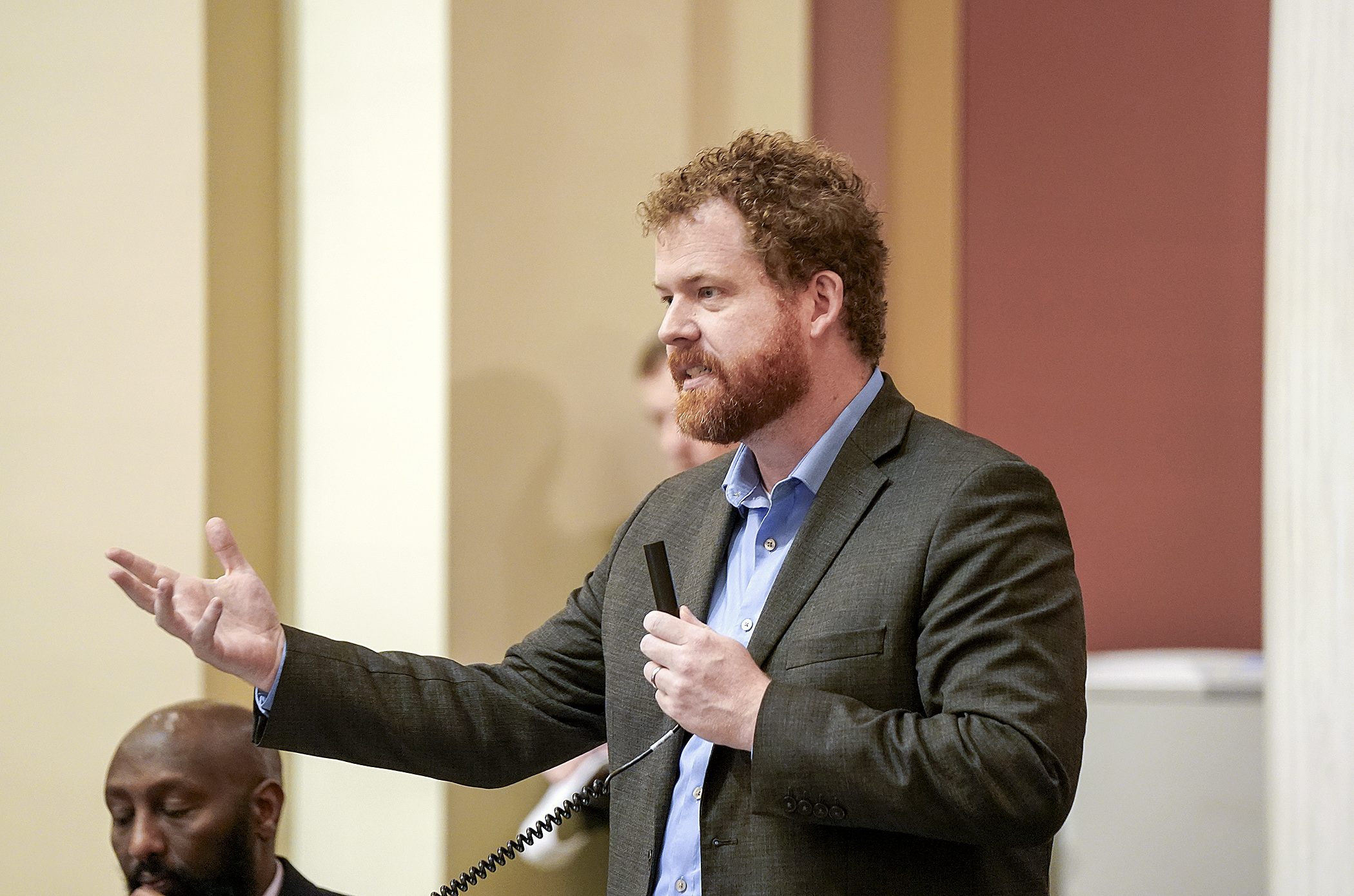House passes bill to add protections for minors appearing in online media

Hollywood is full of stories about childhood actors reaching stardom and then falling hard, often with tragic endings.
That same sad pattern is being replayed on social media platforms, says Rep. Zack Stephenson (DFL-Coon Rapids), where some parents or managers are exploiting young children for profit without any concern for their social or mental well-being.
“This can be big money,” he said before the House passed HF3488, a bill he sponsors that aims to stop this financial exploitation. Following Wednesday's 103-26 vote, the bill is headed to the Senate.
Stephenson cited a case where Kyle Fisher, father of twin girls Taytum and Oakley, earns between $10,000 and $20,000 for just one post of them on an Instagram account with more than 2 million followers.
If parents are making money off the work their children do to create lucrative online content, they deserve fair compensation, Stephenson said.
To that end, the bill would require a trust account and payment for the content created using images and videos of a minor in online social media, and for the trust to be maintained until the minor reaches age 18.
It is modeled on a California law that has been effective in protecting underage actors from exploitation by their parents or managers, said Stephenson.
“This also has a very dark side,” Stephenson said, noting that sexual exploitation of minors is also common.
Some accounts purporting to be run by minors are actually managed by adults, he said, and can feature photos of scantily clad teen and pre-teen girls, with more explicit content offered behind a paywall.
Sadly, a common outcome is that these sites harm children by lowering their self-esteem and attracting the attention of adult predators, he said.
The bill would require that records be kept on minors who appear in at least 30% of the content creator’s videos, when such videos generate income, including the minor’s name, compensation generated, and how much was paid to the minor’s trust account.
Further, the bill would require that records be readily accessible to the minor and it would allow the minor to request to delete the content with their likeness at any time after they turn 13.
The minor, or an adult previously depicted as a minor, could sue for damages if any bill provisions are violated.
Rep. Anne Neu Brindley (R-North Branch) supports the steps the bill would take to try to stop the “disgusting exploitation of children,” but voted against it because of the danger it could also quash non-exploitive content that parents and their children create with beneficial outcomes.
“I think about all of the good, wholesome stuff that’s out there,” she said.
Rep. Joe McDonald (R-Delano) called the bill “problematic at best” and too intrusive into the lives of the people it purports to protect. “We as lawmakers need to be careful as we get into the homes of our family members and tell parents and children what they can and cannot do in making content.”
Related Articles
Search Session Daily
Advanced Search OptionsPriority Dailies
Speaker Emerita Melissa Hortman, husband killed in attack
By HPIS Staff House Speaker Emerita Melissa Hortman (DFL-Brooklyn Park) and her husband, Mark, were fatally shot in their home early Saturday morning.
Gov. Tim Walz announced the news dur...
House Speaker Emerita Melissa Hortman (DFL-Brooklyn Park) and her husband, Mark, were fatally shot in their home early Saturday morning.
Gov. Tim Walz announced the news dur...
Lawmakers deliver budget bills to governor's desk in one-day special session
By Mike Cook About that talk of needing all 21 hours left in a legislative day to complete a special session?
House members were more than up to the challenge Monday. Beginning at 10 a.m...
About that talk of needing all 21 hours left in a legislative day to complete a special session?
House members were more than up to the challenge Monday. Beginning at 10 a.m...